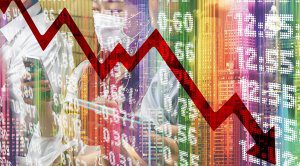 Whether the damage done to the economy is transitory or structural has important implications for businesses and governments, writes Philip Cross in the Financial Post. Below is an excerpt from the article, which can be read in full here.
Whether the damage done to the economy is transitory or structural has important implications for businesses and governments, writes Philip Cross in the Financial Post. Below is an excerpt from the article, which can be read in full here.
By Philip Cross, August 13, 2021
As governments gradually remove most public health restrictions, the question needs to be asked: Are we reopening the Canadian economy or rebuilding it? This is not just a matter of semantics. Whether the damage done to the economy is transitory or structural has important implications for businesses and governments.
The idea that the economy only needs the green light to reopen implies few scars remain from last year’s severe recession. This was the premise of most government policy: send checks to keep people in place as their work disappears and then cross your fingers and hope that somehow things right themselves. This approach seems vindicated by the discovery and distribution of vaccines, without which governments had no realistic plan for reopening the economy.
Notwithstanding the unprecedented harshness of the 2020 recession, some of the most talked-about structural impacts never happened. Despite all the hand-wringing about the pandemic’s effect on working women and youths, the biggest long-term impact on the labour market turned out to be the accelerated retirement of older workers. So far, the widely predicted tsunami of foreclosures and personal and business bankruptcies has not materialized. It will be crucial for the reopening versus rebuilding debate to see whether bankruptcies and foreclosures do spike once governments end their aid programs.
The pandemic clearly did have some structural impacts. Industries providing face-to-face services currently confront two big challenges. One is that demand has been slow to recover and, in some instances, may take years to return to pre-pandemic levels. This shift is already evident in the rising share of unemployment that is long term, even as overall joblessness declines. Many services workers left their industry, either retiring or shifting to more stable occupations.
***TO READ THE FULL ARTICLE, VISIT THE FINANCIAL POST HERE***




